FORWARD OPERATING BASE ISKAN, Iraq (Army News Service, Dec. 1, 2008) -- The Soldiers of 3rd Battalion, 7th Infantry Regiment expected to spend a second consecutive Christmas in Iraq. This year they received an early Christmas present that changed their expectations.
The Soldiers recently learned their scheduled 15-month deployment would be cut short by several weeks, bringing them home to Fort Stewart, Ga., with the rest of the Vanguard Brigade, in time for the holidays.
"We were not home for Christmas last year," said Lt. Col. Timothy Newsome, 3-7th Infantry Regiment. commander. "But surprisingly, it didn't seem to affect anyone's morale. They are just about getting after the mission. Soldiers kept their chin up. We laugh whenever we greet one another and say, 'Hey, one more Christmas to go.'"
As the 4th Brigade Combat Team, 3rd Infantry Division's mechanized infantry battalion, the "Cottonbalers" faced hardship with good humor and determination in their year-plus at Forward Operating Base Iskan. It contains some of the most dangerous areas in Babil Province, such as Seddah and Jurf as-Sakhr.
The Cottonbalers were charged with a counterinsurgency mission, as the other surge brigades were, aimed at stopping the flow of weapons into Baghdad and giving the new government room to operate.
The area of operations for Soldiers was home to both Sunni and Shia extremists. Even with the troop surge at its height, some villages and towns had seen little or no coalition presence since 2003.
"If I had to use one word to describe the security situation when we first moved in here, the word would be 'tenuous,'" said Newsome. "Folks just didn't go down to Seddah."
The last time the embedded provincial reconstruction team went into Seddah -- about three months before the Cottonbalers arrived in theater -- it had been hit with an explosively formed projectile, Newsome said.
"Seddah was left alone, and it was pretty much Jaysh al-Mahdi central -- it was a perfect staging location," Newsome said. "They were not used to seeing coalition Soldiers and didn't seem to be interested in seeing coalition Soldiers."
Musayyib, a town on the banks of the Euphrates River just south of FOB Iskan, had seen too much violence. A car bomb there killed eight Iraqis in April 2006. The town's central traffic circle turned into a dumping ground for garbage and scrap. Newsome knew that a successful counterinsurgency campaign would not only have to provide citizens with security, but give them confidence that peace and prosperity would return.
Citizens there might turn against the insurgency, Newsome thought, if the unit could get some baseline security requirements in place.
"If we can get those requirements in place, and if we can build upon that with projects and governance tie-ins and have people actually start to believe in the promise of a better tomorrow again - that was something that was sadly lacking in the area for such a long time," Newsome said. "They had not been embraced by us, by the government of Iraq, nor by the provincial government. They made perfect targets for the insurgents."
Recent reconstruction efforts showed citizens there that progress could be made. Today, the traffic circle is regularly patrolled by Iraqi Police, the streets are clean, new sidewalks are installed, and there is even a fenced-in park nearby.
"We're not the only ones who notice that," said Newsome. "The population looks at that."
Before Coalition-led reconstruction could begin, the Soldiers of 3-7 had to drive out insurgents who still held sway in areas south of Baghdad. Operation Marne Roundup was the first major combat operation for the 4th BCT, and the Cottonbalers played a large role. A kinetic operation aimed at clearing out al-Qaeda cells in key areas, Marne Roundup focused on areas in the town of Khidr.
Al-Qaeda gave citizens there a choice, said Newsome: "You can support us, either actively or passively, or we're going to blow your home up."
Khidr residents suffered heavily at the hands of the terrorists.
"There were multiple homes blown up; the entire area was leveled except for three or four homes," he said. "You can go through there and see which homes were rebuilt and which homes were left."
Gradually, residents began to return after the area was cleared. Soldiers helped bring construction materials so that people could repair their homes and return to a normal life.
"They have salvaged the bricks, knocked the mortar off of those bricks and rebuilt those homes. You have an entire population of that town, over 700 families who had been driven out by AQI, that came back in, and they have resettled the area now," said Newsome.
Newsome recalled a turning point in the struggle. About the second week in January 2008, just a month or so after the unit had finished ridding the area of Al-Qaeda, families began moving back into the city.
"They started holding classes in a bombed-out school while their parents were rebuilding their homes - it was pretty impressive," Newsome said.
Newsome is especially proud of schools his Soldiers helped to rebuild. He sees those projects as reinforcing the citizens' faith in their own country. As security returned, the government of Iraq began investing more of its own money into reconstruction.
"The populations here in Musayyib, Jurf as-Sakhr and Seddah -- they were sick and tired of the violence," Newsome said. "They want an opportunity to raise their families, work a normal job, bring their kids up in a safe environment, allow their kids to pursue an education, all in the name of getting after a better tomorrow. What we achieved by building those schools, it demonstrated our sincerity.
"In those situations where the Iraqi government was behind the effort or there were Iraqi funds that were involved in the effort, that is a great indicator for the population who want their government to be involved in their lives. They want to be part of the country of Iraq."
As operations in the area transitioned from kinetic to non-kinetic, Soldiers found themselves increasingly involved in combined operations with the Iraqi Army and Iraqi Police. Babil Province officially took responsibility for its own security in October. Platoon sergeants now routinely patrol with their IP counterparts, introducing them to local citizens they have come to know well. Company commanders and platoon leaders attend town council meetings, helping to build the capacity of those local governments.
An essential part of successful counterinsurgency operations is working with the population to help meet their basic needs, Newsome said. After serving his first tour in Iraq during Operation Iraqi Freedom I, Newsome helped implement some of the lessons he learned as an observer/controller at the Joint Readiness Training Center in Fort Polk, La. There, he said, he learned from the mistakes of others. It was an experience that served him well in OIF V. Getting the citizens of Iraq on the coalition's side, he said, meant forming relationships based on trust and respect.
"It's all about the relationship. You've got to go out there and shake hands," Newsome said. "You've got to convince people that we have their best interests in mind, and you have to work hand-in-glove with the Iraqi Security Forces that are there, no matter what condition they are in. If the population sees coalition forces and ISF together, there's a measure of trust that's there," he said.
As Iraqis found they could trust coalition forces in the area, support for insurgents began to erode, and citizens began reporting suspicious activity. That paid immediate dividends for the 3-7th Inf. Regt. Soldiers. To date, a total of 177 suspects have been detained, and the equivalent of 35,000 pounds of explosives have been found. Weapons caches discovered included more than 100,000 items. Without the help of informants, only two people were detained and only six weapons caches were found in a period of 14 months.
One reason citizens have come to trust Newsome's Soldiers is that they never rely on mass roundups to detain suspected insurgents.
"Iraqis are like Americans - we don't like being messed with," he said. "Our home is our refuge. Every time you do that, you sever ties; you sever relationships. We do something called precise targeting. When the people saw we were putting that much energy into making sure we only arrested the bad guys, and that when we arrested the bad guys, they went away for a long time, they started helping us out."
Newsome said he's learned some lessons in Iraq, especially about the value of building relationships.
"I would never have guessed that the value of forming relationships would be as extensive as it is," said Newsome, reflecting on the past year. "What I didn't understand was the value of those relationships when bad times come -- when there are small challenges or blips that may derail your progress. Because of these relationships, those folks reached back to us. We had reached out to them when we first got here to get the relationship started, then when something happens, when you lose a Soldier or when there is an accident, those relationships keep the train of progress on track. I would never have understood that."
Newsome admitted there were hard times along the way. Behind his desk are the pictures of eight of his Soldiers who have made the ultimate sacrifice. He credits the success of his mission to those Soldiers and the others who have kept the area safe from insurgents.
"They have been absolutely essential to the whole process. First of all, they had to believe in the philosophy that I was putting out; this idea of reaching out to citizens and co-opting spheres of influence. I couldn't do that without the company commanders and platoon leaders and the NCOs that we have going out there every day," he said.
(Sgt. David Turner writes for the 4th BCT 3rd Inf. Div)
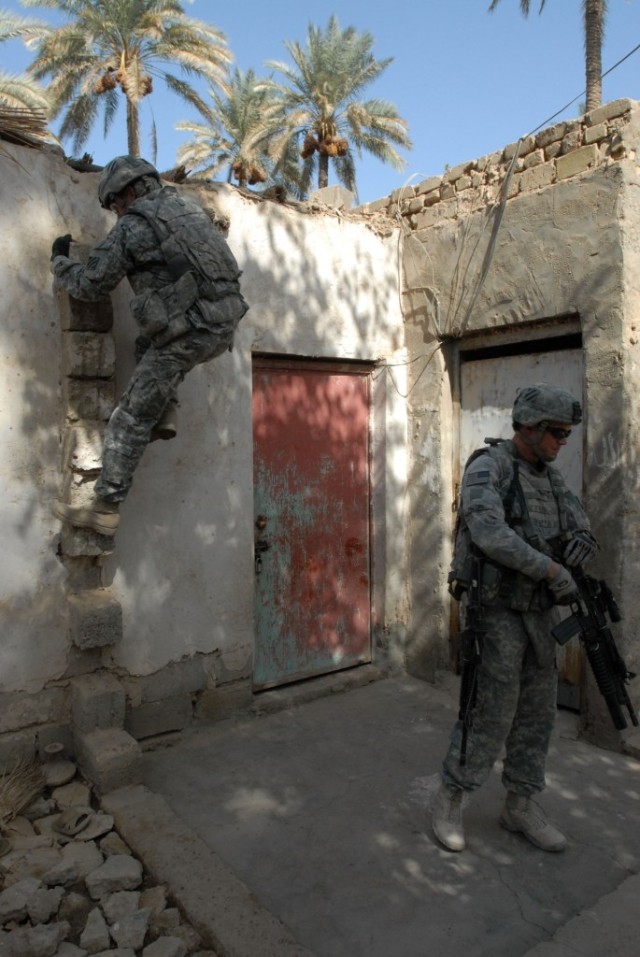
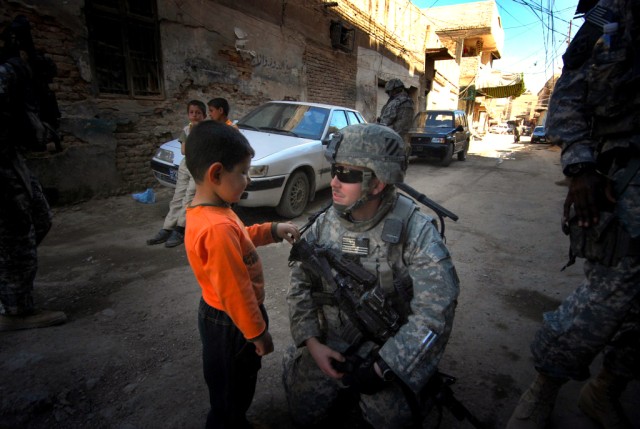
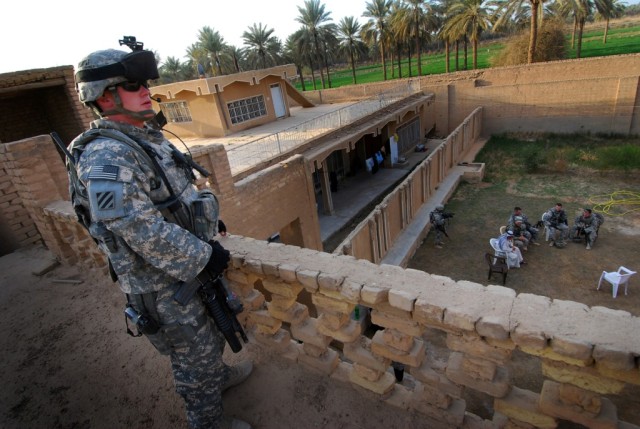
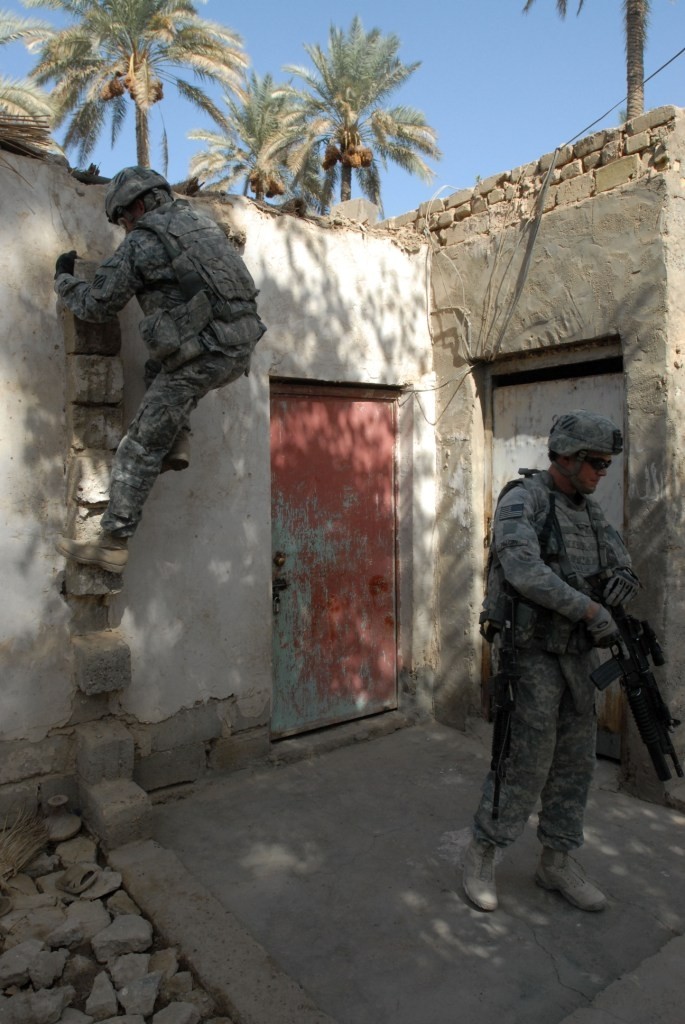
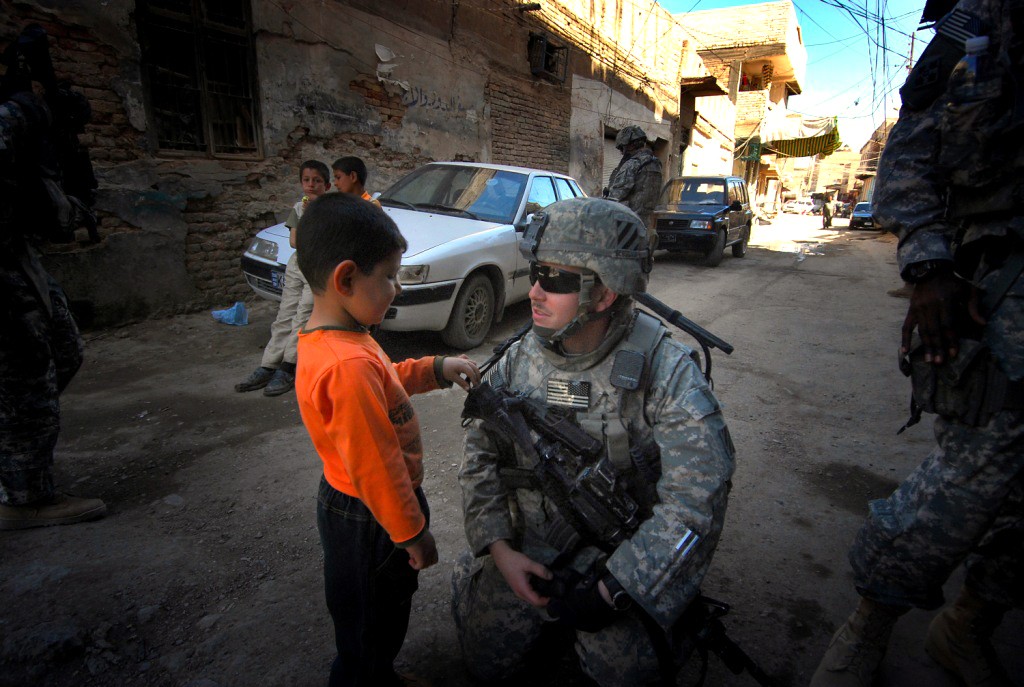
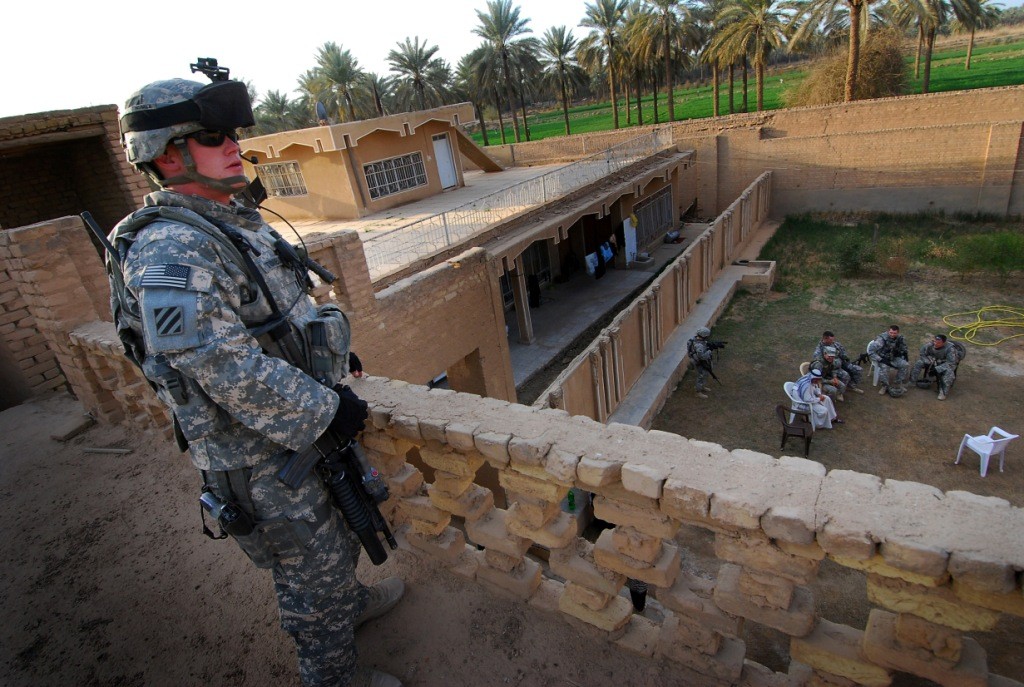
Social Sharing